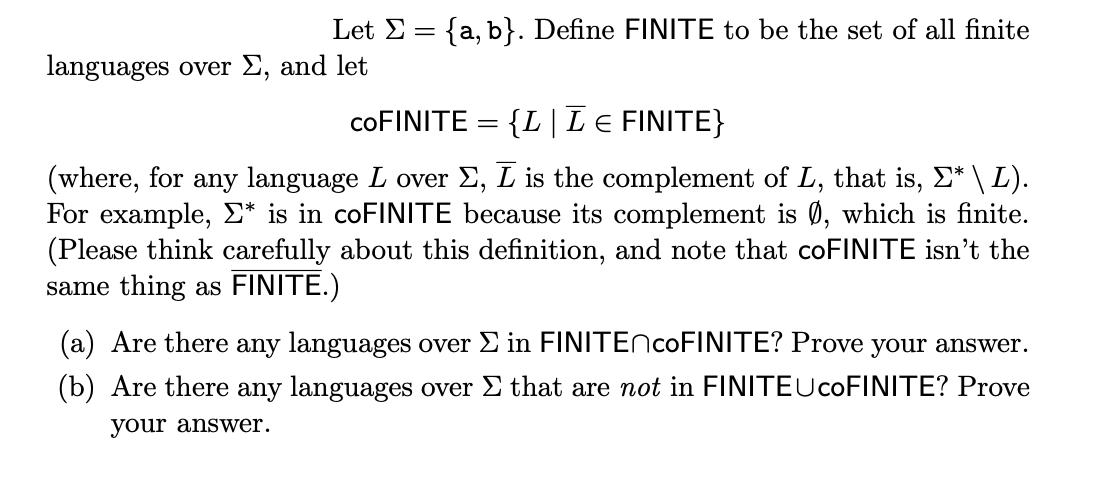Question: Let = {a, b}. Define FINITE to be the set of all finite languages over , and let COFINITE = {LLE FINITE} (where, for

Let = {a, b}. Define FINITE to be the set of all finite languages over , and let COFINITE = {LLE FINITE} (where, for any language L over , is the complement of L, that is, * \ L). For example, * is in coFINITE because its complement is , which is finite. (Please think carefully about this definition, and note that coFINITE isn't the same thing as FINITE.) (a) Are there any languages over in FINITE coFINITE? Prove your answer. (b) Are there any languages over that are not in FINITEUCOFINITE? Prove your answer.
Step by Step Solution
There are 3 Steps involved in it
a Yes there are languages over that are in both FINITE and coFINITE This is because a language Lis i... View full answer

Get step-by-step solutions from verified subject matter experts


